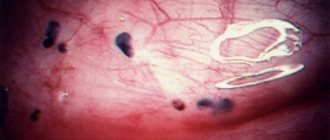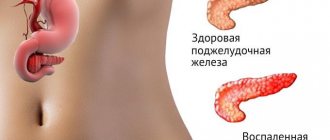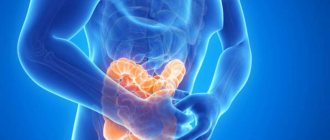GastrituNet.ru » Stomach diseases
One of the most common pathologies that affect humans are various stomach diseases. This is largely due to the fact that a huge load falls on him, which does not always correspond to healthy principles of life. The organ is affected by infectious agents, excessive amounts of food consumed, as well as any change in metabolic processes.
Therefore, it is necessary to know exactly the main causes and symptoms of gastric diseases in order to identify them without delay and begin immediate treatment. Such diseases cannot be neglected, because through digestion the human body is saturated with energy, receives the substances necessary for the construction of cells and ensures the health of all systems.
- 1 Stomach diseases
- 2 The most characteristic symptoms of gastric diseases
- 3 Diagnosis of stomach diseases, examination methods
- 4 General principles of treatment
- 5 Useful video
- 6 Prevention of stomach diseases
Stomach diseases
In order to promptly identify stomach diseases, it is necessary to know exactly the causes of their development, the main symptoms and signs of the disease.
Diagnosis in the early stages significantly improves the prognosis and speeds up the patient’s full recovery. He returns to a normal lifestyle faster without losing his ability to work.
List of major stomach diseases
The most common diseases include:
- disorders;
- infectious diseases;
- gastroenteritis;
- gastritis;
- erosion;
- ulcer;
- phlebeurysm;
- increased secretory activity;
- decreased acidity of gastric juice;
- cancer;
- reflux-esophagitis;
- gastroptosis;
- pyloric stenosis;
- ahilia;
- gurgles.
Pathologies have different ICD codes and usually belong to the eleventh class of the international classification.
Many of the diseases, in turn, are divided into several types. For example, gastritis with high and low acidity is distinguished, as well as its dystrophic appearance. Many diseases have both acute and chronic courses. They affect adults and children, having some characteristics. Representatives of the fairer sex more often suffer from gastritis or duodenitis, and in men the ulcerative process is most often diagnosed.
Infections or disorders are more common in young children.
Causes of stomach diseases
The most common starting point for the development of various pathologies is an unbalanced daily diet. An important role is also played by both the increase in the volume of food necessary for human life and its significant insufficiency.
Very often, the gastric mucosa, as well as digestion in general, suffers from uncontrolled and too strong enthusiasm for various diets for weight loss. It happens that taking various pharmacological agents also disrupts its normal functioning.
Changes in diet and nutrition often lead to inflammatory processes. People's passion for spicy, fatty, canned foods, as well as heavy meals or fast food, leads to chronic irritation of the gastric mucosa.
Very often, the root cause of various pathologies is Helicobacter pylori infection.
Long-term smoking and alcohol abuse lead to the development of negative processes in the stomach.
Changes in HCl synthesis, both upward and downward, serve as a factor in the occurrence of various, sometimes very severe, pathologies.
The cause of the development of many changes in the functions of the stomach can be a disease of the oral cavity, nervous system, psychosomatics or pathologies of other internal organs.
Nutrition
Problems with the stomach (symptoms of a painful condition of the organ are accompanied by a large number of clinical manifestations) are eliminated not only with the help of drug therapy, but also by following dietary standards.
People with gastrointestinal pathologies are strictly contraindicated from consuming the following foods and drinks:
- chocolate;
- alcohol;
- spices;
- semi-finished products and any fast food;
- carbonated drinks;
- coffee;
- grape;
- Rye bread;
- smoked meats;
- canned fish and meat;
- bakery and confectionery products, in the preparation process of which butter dough was used.
Fried, fatty, too salty, spicy and sour foods are completely prohibited. Eating these foods and dishes will aggravate existing stomach problems.
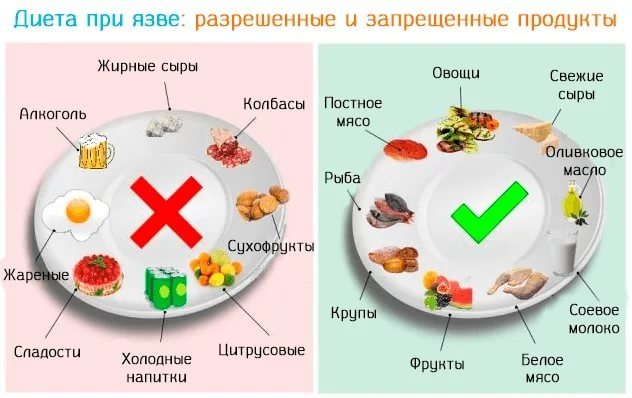
The menu of a person with a painful condition of the digestive system should include the following food:
- liquid or semi-liquid cereal porridges;
- vegetable soups without frying;
- herbal teas;
- unleavened bread made from white wheat flour;
- liver paste;
- small amounts of lean meat and fish.
Cooking should be done by steaming, boiling in water or baking in the oven. All dishes should not contain excessive amounts of salt, hot spices or have a high level of acidity.
The most characteristic symptoms of gastric diseases
In order to identify various stomach diseases in time, you need to know not only their list, but also the main symptoms.
The most significant signs of their development include:
- Pain in the epigastric region.
- Heartburn.
- Hiccups.
- Dyspepsia.
- Abdominal discomfort.
- Feeling of difficulty swallowing.
- Belching.
- Fullness in the epigastrium after eating.
- Flatulence.
- Constipation.
- Diarrhea.
- Spasms.
- Stomach filling too quickly.
- Frequent rumbling in the stomach.
- Nausea.
- Vomit.
The appearance of even one of these symptoms should be alarming, and a combination of several factors at once, especially those observed over a long period, requires urgent consultation with a doctor.
In the case of a combination of fever, severe diarrhea and vomiting, it is necessary to call emergency help, especially if we are talking about a small child.
Sharp pain, vomiting mixed with blood and profuse cold sweat in a patient suffering from an ulcer requires the arrival of an ambulance, as sometimes it becomes a signal of a perforation of the stomach.
Possible consequences and complications
Stomach problems (symptoms of the underlying disease appear constantly or only during exacerbation) can lead to the development of the following complications and negative consequences:
- perforated ulcer;
- critical exhaustion of the body;
- stomach cancer;
- concomitant diseases of the liver, pancreas, intestines;
- anemia;
- deficiency of vitamins and minerals;
- opening of internal bleeding with subsequent death.
The stomach is a vital organ of the digestive system. The appearance of problems associated with a decrease in its functional activity is a symptom of a developing disease.
The main signs of the pathological condition of the gastrointestinal tract are the presence of nausea, vomiting, epigastric pain, as well as disruption of the process of digestion and transportation of food. Treatment of stomach diseases is carried out with the help of medications, diet and surgery.
Diagnosis of stomach diseases, examination methods
In order to promptly identify the stage when the stomach begins to suffer and diseases develop that give characteristic symptoms, it is necessary to carry out a number of procedures.

The doctor will definitely examine the patient, find out his main complaints, and collect anamnesis.
He will refer him for a clinical and biochemical blood test, a general examination of urine, feces and gastric juice. The Gregerson reaction is mandatory to detect hidden bleeding. For the purpose of differential diagnosis, you should also do PCR for various infections and carry out bacteriological culture to determine sensitivity to antibiotics.
Often a gastroenterologist wishes to examine the results of histological or cytological analysis of samples of the gastric mucosa.
To determine the features of its structure, the functioning of the organ or to identify various neoplasms, gastroscopy, ultrasound, fluoroscopy using contrast agents, and parietography using gaseous substances are performed.
Diagnosis of stomach diseases is complemented by modern methods, which include computer or magnetic resonance imaging, videogastroscopy, FGDS.
If necessary, various endoscopic methods are also used, allowing not only to determine the degree of neglect of the pathology of the esophagus, stomach and duodenum, but also to carry out diagnostic and minor surgical procedures.
The doctor also takes photos and videos, saving them on convenient media. This is necessary in order to track the intensity of the disease over time, carefully study the features of the structure of the gastric wall, and also enable other specialists to make their conclusions by prescribing appropriate treatment.
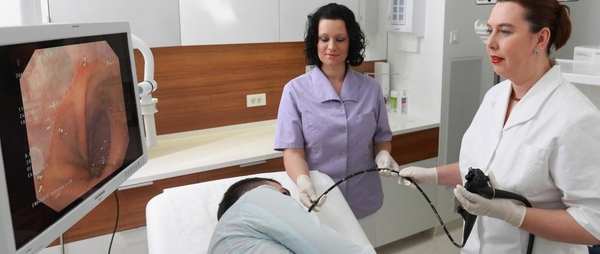
General principles of treatment
To get rid of various gastric diseases, a strictly individual, comprehensive approach is required.
For its purposes, the use of various medications, replacement therapy, surgical interventions, the application of diet principles, traditional medicine, exercise therapy, and preventive measures are used.
Recommendations for the nutrition of patients
In order to reduce the impact of various stomach diseases on the patient’s body and well-being, it is necessary, first of all, to improve his diet.
The most commonly used are the first or sixteenth treatment tables, as well as their varieties. They are able to provide the patient with the maximum amount of nutrients, taking into account the peculiarities of the functioning of the stomach and excluding from the diet all possible factors that can provoke an exacerbation of chronic diseases.
They imply a number of basic principles. You need to give up hard-to-digest foods, fatty, spicy or smoked. A ban is imposed on sour, canned, coarse or salty foods. Peas, mushrooms, cabbage, tomatoes, radishes, turnips, and nuts should be avoided. You cannot consume baked goods, sweets, alcohol, carbonated drinks, juices from concentrates, or coffee.
It is worth giving preference to vegetable soups, purees, porridges, zucchini, carrots, beets, and pumpkin. It is allowed to eat lean meat or fish, stale bread, hard-boiled eggs, and omelettes. It is recommended to flavor food with olive or sunflower oil. It is allowed to include yogurt, kefir or cottage cheese in the diet.
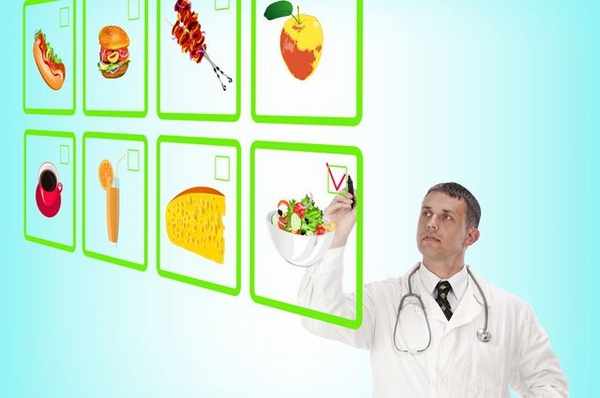
It is advisable to drink at least two liters per day, this includes jelly, mineral waters, soups, infusions of medicinal plants, and weak tea.
All dishes must be boiled or baked. It is necessary to grind the products or give them a semi-liquid form. It is necessary to apply the principle of fractional nutrition. You can't eat hot or cold. All dishes are served at room temperature.
Such measures will reduce the intensity of symptoms of stomach disease and prevent exacerbation of chronic pathologies.
Diet
Patients suffering from gastric ulcers must adhere to certain dietary rules:
- food intake is carried out five to six times a day in small portions. At one time - no more than 200 grams of food products;
- processing products only by stewing or steaming;
- the water ration should be up to two liters per day;
- preference is given to first courses in the form of pureed soups with pureed vegetables;
- the meat diet should consist of dietary chicken, rabbit, turkey; main courses are prepared from minced meat;
- It is mandatory to include compotes, jelly, and fruit drinks made from fresh or dried fruits in the diet.
Compliance with all the gastroenterologist’s recommendations on drug treatment, the use of folk remedies at home and mandatory clinical observation make the prognosis for health and ability to work positive.
Prevention of stomach diseases
In order to avoid disturbances in the functioning of the stomach, it is necessary to follow precautions and lead a healthy lifestyle. Certain rules will also help get rid of relapses of diseases.
Preventive requirements include:
- timely diagnosis of disorders of the gastrointestinal tract;
- taking medications regularly;
- application of the prescribed diet;
- balanced diet;
- refusal of alcohol;
- smoking ban;
- regular examination by a specialist;
- stress prevention;
- adherence to daily routine;
- walking;
- good sleep;
- weight control;
- strengthening the body's resistance.
Preventive measures will stabilize the patient’s condition, speed up his recovery, improve digestion processes, ensure the functioning of the body as a whole, normalize the activity of the nervous system, allow timely detection of oncology, and will also become a barrier to various infectious or inflammatory processes in the stomach.
